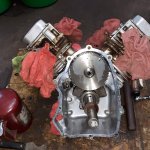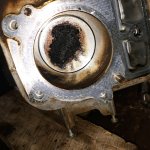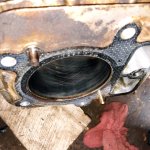I have a 19 year old Craftsman 42" Lawn Tractor with a Briggs & Stratton Model 407777 Type 0167E1 Code 020311YG engine.
It has done well over the years, but oil usage tells me it's time to open it up. I'm thinking it will need at least a new set of rings, but of course I won't know for sure till I open it up.
Currently it has about 160 psi compression on both cyclinders. It tends to run ok if I keep the oil at the low mark on the dip stick, but if I bring it above that oil usage goes up quite a bit.
I have rebuilt a few car and motorcycle engines over the years, but never a lawn mower engine. I was wondering if anyone could guide me on where to find torque specs and a good source for parts. Also if anyone has a link for a good rebuild link or video.
Thanks, Ed
It has done well over the years, but oil usage tells me it's time to open it up. I'm thinking it will need at least a new set of rings, but of course I won't know for sure till I open it up.
Currently it has about 160 psi compression on both cyclinders. It tends to run ok if I keep the oil at the low mark on the dip stick, but if I bring it above that oil usage goes up quite a bit.
I have rebuilt a few car and motorcycle engines over the years, but never a lawn mower engine. I was wondering if anyone could guide me on where to find torque specs and a good source for parts. Also if anyone has a link for a good rebuild link or video.
Thanks, Ed



